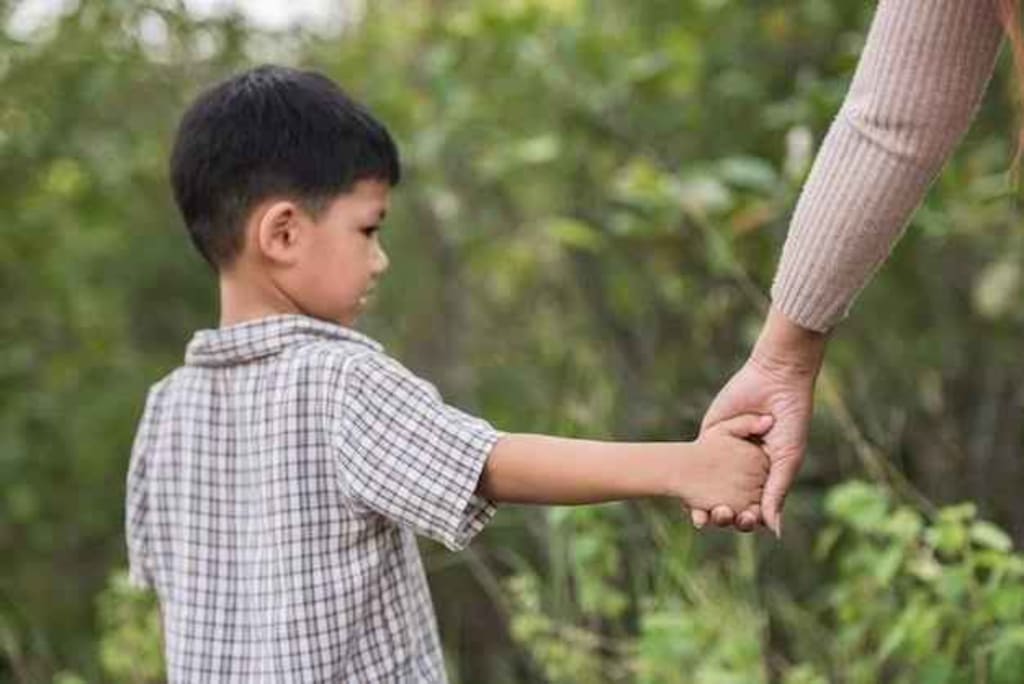Innocence and the Influence of Society on Children
Na them they Rush Us

It was a sunny Sunday, the last one of July. I had taken my twelve-year-old son, Charlie , with me for some shopping. As we were about to leave, a sudden thought struck me.
"Charlie ," I called out.
"Yes, Mum?" he replied, his attention focused on a toy he was inspecting.
"Isn't next Sunday Ruth's birthday?" I asked, referring to his best classmate. They were often chosen together to represent their school in academic competitions. To my surprise, Charlie seemed indifferent to Ruth's birthday, which left me puzzled.
"I'm not sure, Mum. I can't remember," he responded casually, still captivated by the toy.
His nonchalant attitude caught me off guard. "What do you mean you can't remember?" I asked, startled.
"Mum, I like this toy," he said, turning to me and abruptly changing the subject. I felt a sense of unease, wondering why he was avoiding the topic.
Just as we were about to leave the mall, we unexpectedly ran into Beatrice and her mother. We used to live in the same neighborhood before we moved to our own house. Normally, Charlie would eagerly engage in a friendly chat with Beatrice , but today was different. There was an unspoken tension between them. Beatrice made several attempts to strike up a conversation, but the new Charlie seemed distant, as if he were hurt.
"My in-law," Beatrice 's mother called out to him, using her usual playful nickname. "Is everything okay?"
Charlie smirked at her directly, and I felt a wave of embarrassment washing over me. "Don't mind him, he's just in his 'bad mode' today," I quickly intervened, trying to diffuse the situation.
As we exited the mall, I confronted my son. "Charlie , what's wrong with you today?"
"Nothing," he replied sharply. "Why are you asking?"
"You've been distant all day. First, it was Ruth, and then meeting Beatrice seemed different today."
He quickened his pace, a faint smile playing on his lips. "Fine boys like us," he murmured, "we don't get caught up in girls' conversations. Na dem girls dey rush us ( They're the ones chasing after us") .
I heard his words loud and clear, and I couldn't help but feel a mix of shock and concern. "Charlie , what did you just say?"
"It's nothing, Mum. Just reciting a poem," he replied casually.
I reached out and grabbed his arm, my tone serious. "Where did you hear that?"
"So you heard me," he chuckled.
"Charlie , I'm not joking. Tell me where you heard that."
"Come on, Mum. It's everywhere now. Even Dad has been saying it."
My mind raced, trying to decipher the meaning behind his words. "Na dem girls dey rush us," he echoed, quoting the popular phrase.
Advice to Parents
In a world saturated with media and cultural influences, the innocent minds of children can easily absorb and mimic the language and attitudes they encounter. Charlie 's encounter with the phrase "Na dem girls dey rush us" reflects the impact of popular culture on the perceptions and interactions of young individuals. What began as a playful catchphrase has embedded itself in the consciousness of our children, shaping their understanding of relationships and gender dynamics.
As parents, it is crucial for us to navigate these influences and guide our children towards healthy perspectives. Communication is key. Engaging Charlie in a conversation about the phrase and its implications allows us to address any misunderstandings and provide him with the necessary guidance.
It is essential to teach our children the importance of mutual respect, empathy, and open communication in relationships. By fostering an environment where they feel comfortable discussing their feelings and concerns, we can help them develop a balanced understanding of gender roles and dynamics.
Additionally, it is crucial to encourage critical thinking and independent analysis of the media they consume. By teaching our children to question and evaluate the messages they encounter, we empower them to form their own opinions and make informed decisions.
As parents, we must also lead by example. Our words and actions have a profound impact on our children's development. By modeling healthy relationships based on respect, equality, and open communication, we provide them with a strong foundation for their own interactions.





Comments
There are no comments for this story
Be the first to respond and start the conversation.